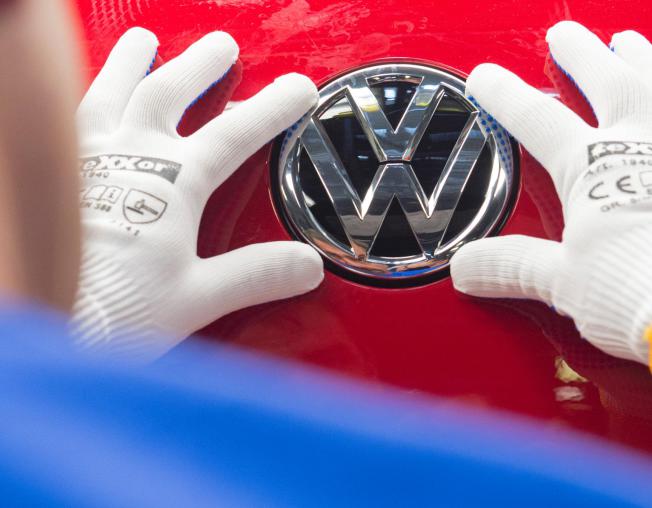Leonid Bershidsky writes: As it accepted the resignation of Chief Executive Martin Winterkorn on Wednesday, the executive committee of Volkswagen’s supervisory board praised his “towering contributions” to the company that stands to lose much of its $37 billion cash stash making amends for major fraud committed on Winterkorn’s watch. Such graciousness is a German tradition, and it raises the question whether there’s something fundamentally wrong with the country’s corporate establishment.
The committee declares as fact that Winterkorn “had no knowledge of the manipulation of emissions data.” There was no way to establish that in the short time since VW’s use of special software to cheat emissions tests came to light. The board, which in April backed Winterkorn in a battle with company patriarch Ferdinand Piech, must have taken the chief executive’s world for it.
When Anshu Jain stepped down as co-chief executive of Deutsche Bank in June, the bank’s stock price was down 17 percent from this year’s high in April, dogged by continuing heavy fines for all sorts of past misdeeds — many committed on Jain’s watch — and a helpless restructuring plan he had proposed. Yet Paul Achleitner, chairman of Deutsche’s supervisory board, expressed his appreciation for the contribution of Jain and the other co-chief executive, Juergen Fitschen, who is leaving at the end of this year, in almost the same words the VW board used for Winterkorn.
In 2013, the supervisory board of Siemens, Germany’s fifth biggest company by revenue, announced the resignation of Peter Loescher, whose time as chief executive was marked by costly delays in important projects and woeful strategic errors, noting that “Under his leadership, the company achieved a substantially higher level of performance and profitability.” Loescher was credited with cleaning up Siemens after the company was caught bribing officials in a number of countries to land contracts.
It may be that malfeasance of the kind seen at VW, Deutsche Bank and Siemens over the years, as well as a lack of executive responsibility for it — beyond the nuisance of having to resign and be sorely missed — is built into the German corporate governance system.
This system is distinctive in that it recognizes the interests of more than just the shareholders. Other stakeholders, such as workers, local governments and often creditors are represented on supervisory boards. Half of Volkswagen’s board consists of employee representatives elected by the workforce. Besides, two of the board’s 20 members are delegated by the state of Lower Saxony. Votes by the workers and the local bureaucrats secured Winterkorn’s boardroom triumph in April. Workers’ representatives, including labor union leaders, take up half the seats on the boards of Siemens and Deutsche Bank, too.
This is called “co-determination.” The term has more to it, though, than joint decision-making. As a result, employees’ and other stakeholders’ interests become closely aligned with those of management.
It is a feature of every scandal that it is followed by promises of a clean-up.
No wonder it often takes intervention from foreign authorities to uncover wrongdoing by German corporations. In the cases of VW and Siemens, U.S. probes led to the damaging revelations. At Deutsche Bank, shady practices might have continued but for the attention of financial regulators in the U.S. and the U.K.
Chancellor Angela Merkel, who has run Germany for the last decade, has done a lot to turn it into a values-based society
The German corporate establishment is out of step with a society that is actively atoning for its 20th century sins. If it cannot cleanse itself, perhaps changes are needed to the corporate governance system to give investors a bigger role and give other stakeholders a stronger voice.

